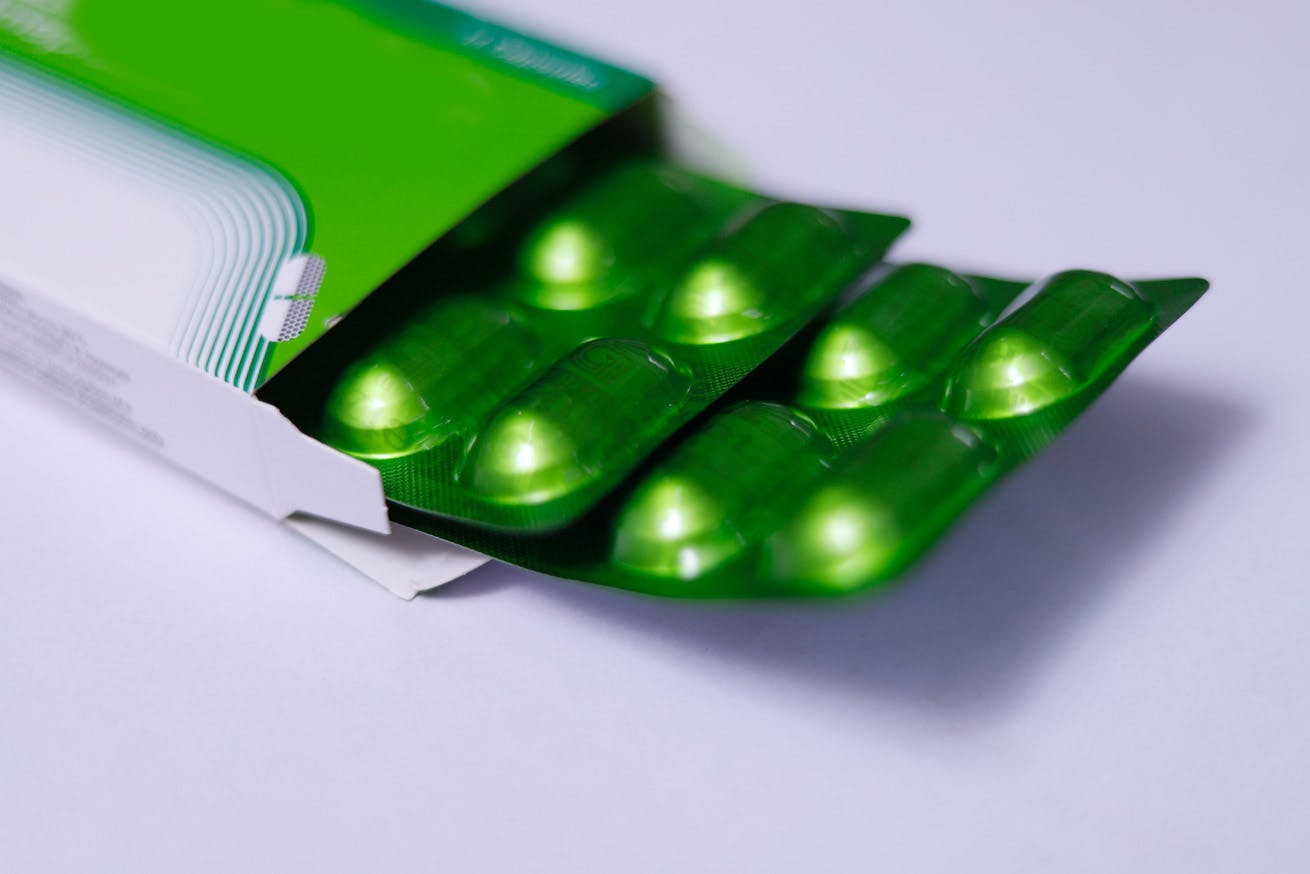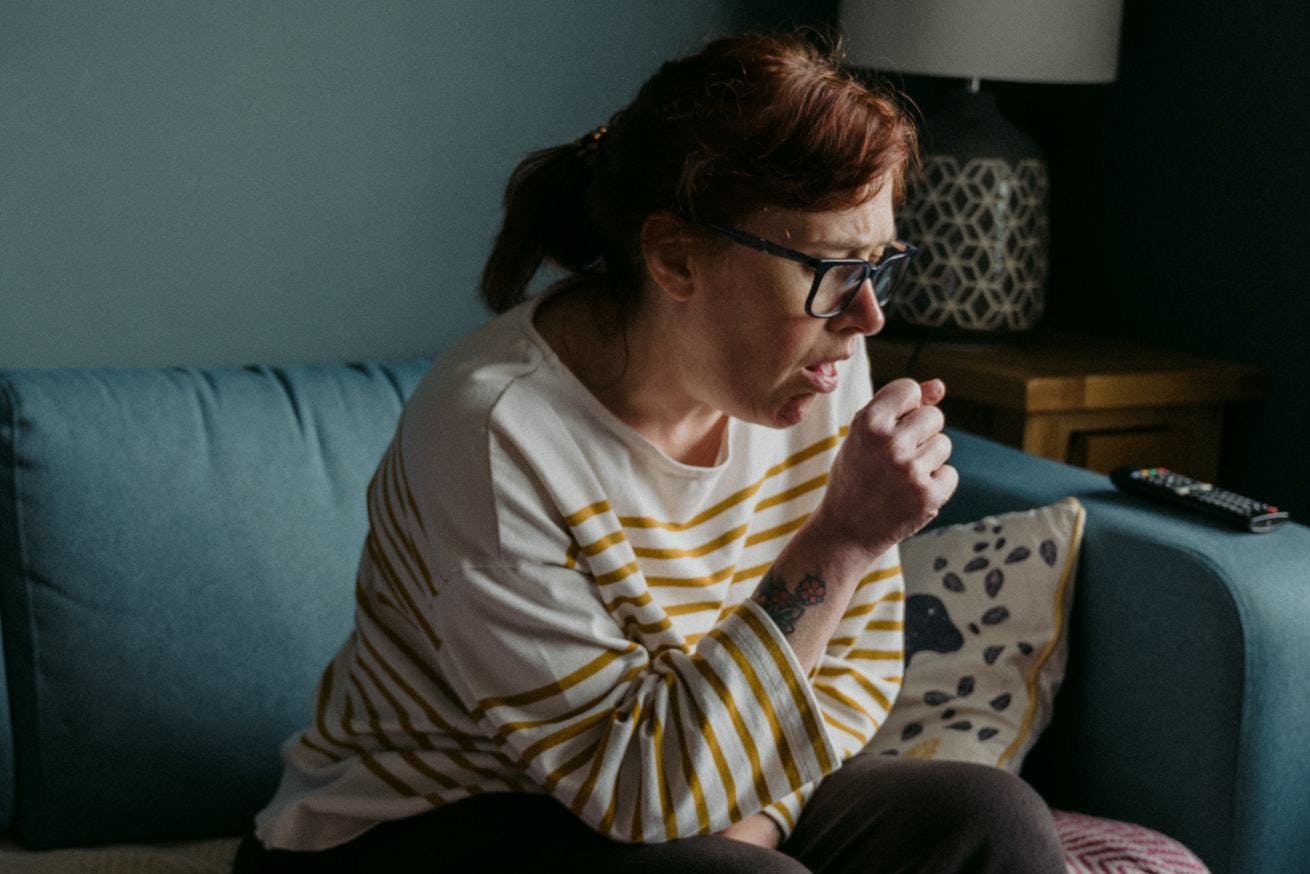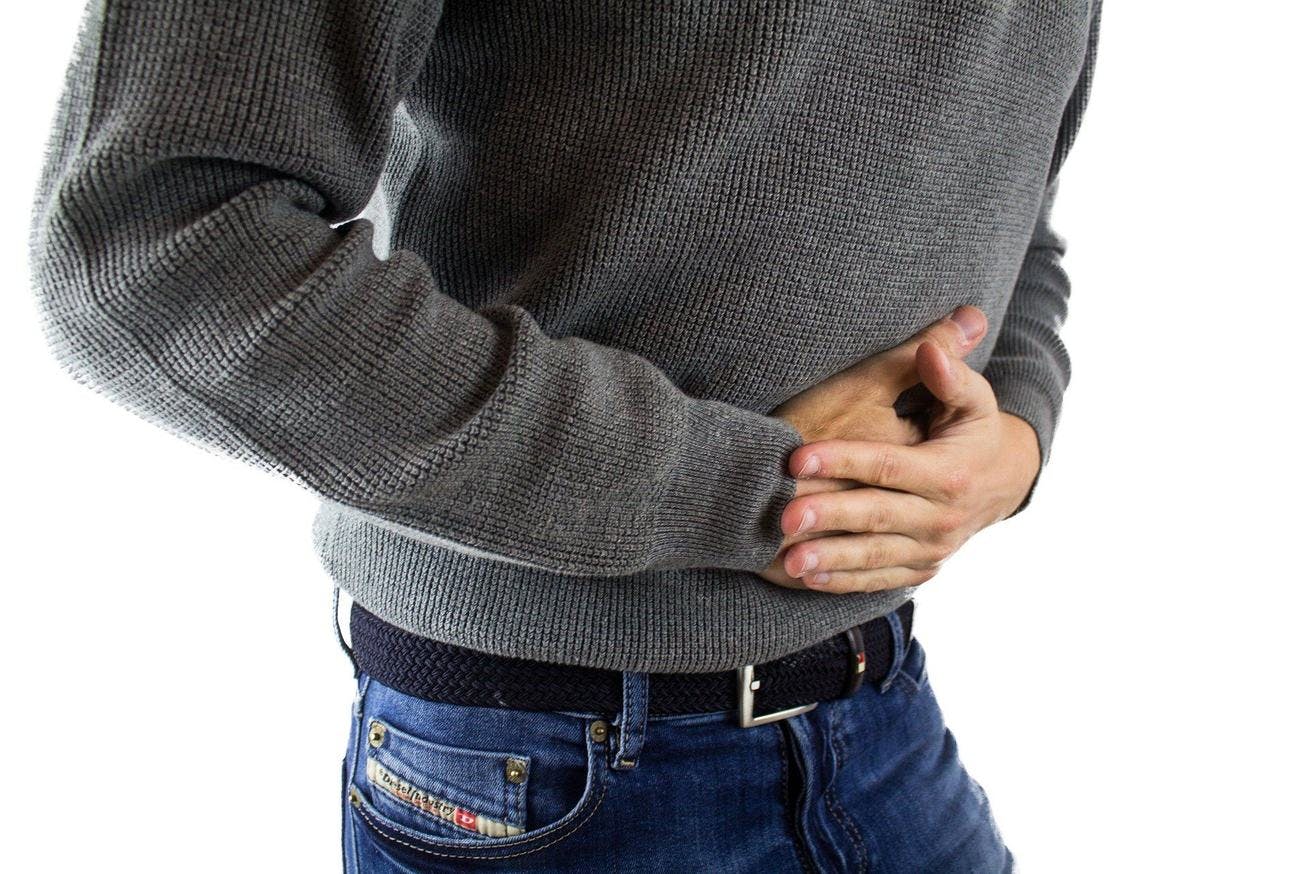Your Questions Answered About PPI Treatment for Reflux
Mr Nick Boyle, Medical Director at RefluxUK gives an overview of the history, efficacy and side effects of PPI medication


Written by Mr Nick Boyle
Proton Pump Inhibitors & Acid Reflux
Proton Pump Inhibitors (PPIs) are the mainstay of treatment for gastro-oesophageal reflux. They are one of the most prescribed group of drugs in the western world. A study published in 2020 that evaluated their use in the UK over 15 years found that 20% of adults had been prescribed these powerful drugs and in most western countries 5-10% of the adult population take them regularly. Worldwide annual sales amount to nearly $15billion. First line medical treatment of anyone complaining of symptoms possibly caused by reflux in the absence of alarm symptoms suggesting cancer is PPIs, and often at increasing doses even if they don’t initially help. And yet while PPIs are undoubtedly effective for many people they are not without problems and increasingly doctors and patients are deciding they’d prefer not to prescribe or take them. So, what are the facts?
What are Proton Pump Inhibitors and what do PPIs do?
PPIs are very powerful antacid drugs. They include omeprazole, lansoprazole, rabeprazole and pantoprazole. Taken twice a day they virtually halt all acid production from the stomach. Since acid can be the cause of symptoms and indeed injury to the lining of the stomach and oesophagus, by preventing its production PPI medicines are very useful in patients suffering with gastro-oesophageal disease, stomach or duodenal ulcers as well as preventing problems for instance when taking other drugs such as anti-inflammatory pain killers.
How effective are PPIs?
PPIs are not the universal panacea that some doctors would have you believe. The symptomatic response depends on what is being treated. Studies have shown that when used to treat inflammation of the oesophagus caused by reflux, called oesophagitis, PPIs are extremely effective; in 80-90% the oesophagus will heal and symptoms of heartburn and chest pain resolve. As inflammation gets more severe, reflecting more advanced reflux disease, response diminishes but many people will still enjoy reasonable symptom control even with high grades of oesophagitis.
However, in other situations the evidence is that PPIs are less effective. In patients suffering with regurgitation, perhaps only 10-20% will experience symptom resolution. And when used to treat laryngo-pharyngeal (LPR) symptoms, 70-80% of patients will find that they don’t help significantly. Overall, about 20-30% of patients treated with PPIs will find that their symptoms either do not respond or do so only incompletely and that they continue to be troubled by them.
Why is this?
Firstly, when the Lower Oesophageal Valve (LOS) fails to the extent that stomach contents regurgitate up the oesophagus and sometimes to the throat and mouth, PPIs can reduce the acid content but not the volume of the refluxate (a term meaning any and all of the contents that 'reflux', i.e. goes from the stomach into the oesophagus, this can include the acid produced in the stomach, as well as food, medications or anything else in solid, liquid or gas form). So, patients will often observe that their heartburn is improved but that they still experience troubling regurgitation. And in many patients with reflux, especially LPR it’s thought that other components of the stomach contents including bile and the enzyme Pepsin which is produced in the stomach are partly responsible for irritating the throat and mouth and these remain biologically active even in nearly neutral acid environments; consequently, preventing acid production doesn’t help prevent symptoms when this is the case. And of course, sometimes patients have conditions causing symptoms which aren’t primarily caused by excessive reflux and so often respond incompletely if at all to PPIs. These include so-called reflux hypersensitivity, functional heartburn and eosinophilic oesophagitis as well as non-oesophageal disease including gastritis, ulcers and gallbladder disease all of which can cause symptoms similar that can be attributed to reflux.
The problems with PPIs
Side effects of PPI medication. It’s always been recognised that some people just can’t take PPIs as they experience side effects. Usually, if one type of PPI causes this type of problem, they all will. These can include aching joints, dizziness, rashes, depression and gastrointestinal symptoms including bloating, pain, constipation and diarrhoea (see below).
Serious associated conditions. In recent years there have been a series of scientific studies that have associated PPIs with other serious health conditions.
These include:
- Osteoporosis
- Bone fractures
- Liver disease
- Dementia
- Renal disease
- Cardiac disease
- Stomach cancer
- Drug interactions
- Vitamin and mineral deficiencies
Many of these studies have shown statistical associations in populations taking PPIs. And because PPIs can potentially influence the functioning of virtually every cell in the body, not just acid producing gastric parietal cells, there are plausible physiological mechanisms by which they may influence disease beyond the gut. However, this doesn’t prove causation and in most cases the existing evidence for risk is either not strong or conflicting. But clearly these reports do raise concern and current guidance advises doctors to prescribe PPIs only when necessary and if possible, only in the short term. At the very least anyone considering taking PPIs long-term should ensure they’re taking them for the right reasons and be made aware of the potential risks and alternative treatment options.
What we do know from published studies with reasonable certainty is that taking PPIs long-term are associated with an approximately 45% increased chance of developing stomach cancer compared with less powerful antacid H2- blockers. There is a 65% chance of developing the serious gastro-intestinal infection c. difficle as well as other infections such as campylobacter and respiratory infections in some specific groups of patients. In some people low levels of calcium, folate, vitamin B12 and magnesium have all been reported. This last problem, although rare can be life-threatening. Low magnesium can cause muscle weakness, dizziness, seizures, mental illness, ataxia, neurological problems, tetany and cardiac arrhythmias. In anyone taking PPIs who develop these symptoms this problem should be considered and the drugs stopped while magnesium levels in the blood are measured.
Effect on the gut biome
What isn’t so widely recognised is the potential effect of PPIs on the normal gut biome. The production of acid by the stomach is a normal physiological process and there are two primary reasons. Firstly, hydrochloric acid starts the process of breaking down the food we eat so that it can be digested. But it also acts as a barrier, protecting the rest of the gut from the micro-organisms that we inevitably ingest when we swallow and eat. Some of these will be on our food but our mouths and throats are also colonised by many different organisms. Normally these are killed in the stomach but in the absence of normal levels of stomach acid these micro-organisms can pass into the small bowel and then the colon. Does this matter? Increasingly we’re understanding that it does for two reasons.
PPIs disrupt the normal gut biome
Firstly, studies have shown that the usual balance of organisms in the biome is disturbed in patients taking PPIs. A study published in 2020 reported that PPI use is associated with decreased bacterial richness and profound changes in the gut microbiome. Furthermore, oral bacteria and potentially pathogenic bacteria are increased in the gut microbiota of PPI users and on the population level there were more microbial alterations in the gut associated with PPI use than with antibiotics or other drug use.
The disruption of the normal balance of organisms in the gut is sometimes known as “dysbiosis”. This imbalance or lack of the normal diversity of microorganisms is important because of the role the human microbiome has in regulating normal physiological functions. These include gut motility, stomach and pancreatic secretion, protection of the mucosal epithelial barrier which when it fails may cause the passage of toxic substances into the blood stream- so called “leaky gut” and the interplay between the gut and the central nervous system. How dysbiosis may affect these mechanisms and cause specific symptoms or disease is the subject of intense scientific study but clearly PPIs have the potential to disrupt normal gut physiology by their influence on the gut biome and in doing so potentially cause illness.
PPIs can cause Reflux symptoms
However, published studies have also demonstrated some specific problems potentially attributable to PPIs. Usually the small bowel, which immediately follows the stomach is relatively sterile, mostly because stomach acid kills most of the micro-organisms that we eat. However, when the small bowel becomes colonised by micro-organisms it causes a specific condition known as Small Intestinal Bacterial Overgrowth (SIBO). SIBO has been shown to often co-exist with Irritable Bowel Syndrome (IBS) and so the mechanism by which PPIs can cause constipation and diarrhoea may well be via their influence on the gut biome. Indeed, treating IBS patients for SIBO when proven by breath tests may cure their IBS symptoms.
Other studies have also found that PPIs themselves are associated with dysbiosis and functional gut problems including irritable bowel syndrome, but also so called “functional dyspepsia” (FD). This describes a condition in which patients can experience a variety of symptoms including heartburn, discomfort in the chest and upper abdomen, abdominal bloating, belching, fullness and nausea for which an alternative diagnosis is not found. Interestingly these symptoms can be very similar to those experienced by patients with SIBO and are also often very hard to distinguish from typical “reflux” symptoms.
A systematic review published in 2021 found SIBO occurred on average twice as frequently in FD patients taking PPIs (66.7%) as compared to FD patients not taking PPIs (27.8%) although this just failed statistical significance. We have published data which has demonstrated that most patients being considered for anti-reflux surgery and who have taken PPIs long-term also have SIBO.
The significance of these observations is that in some patients symptoms thought to be secondary to reflux are actually caused by SIBO or another undefined alteration in the gut biome (dysbiosis) and that PPIs may be the cause of these symptoms. Often, patients are given the diagnosis of Functional Heartburn and told that there is no specific cause. In these situations, the persistent use of PPIs may perpetuate and exacerbate rather than help reduce symptoms. Often patients develop bloating (wind) and belching when treated with PPIs and the belching itself can then precipitate reflux symptoms. In our experience LPR symptoms in particular seem to be related to SIBO, probably because every time a patient belches they expose their throat to an aerosol of gastric contents including pepsin which is highly irritant.
In summary, always remember that PPI medications may sometime cause rather than help reflux type symptoms because of their influence on the gut biome.
Practical considerations
- Response. If they haven’t helped symptoms significantly within 4-6 weeks of starting, then PPIs probably won’t so consider if there is an alternative diagnosis or treatment.
- High doses. There is no proven scientific or clinical benefit from increasing doses beyond a standard twice daily regimes; sometimes doctors are tempted to prescribe very high doses of PPIs as they’re unsure what else to do! We’d advise against this practice.
- Timing. PPIs work most-effectively when taken 30 minutes before breakfast; acid is secreted in response to eating and taking them after food will reduce their effect enormously. Adding a further dose 30 minutes before the evening meal may have additional benefit in patients with night-time symptoms.
- The PPI test. It is usual practice in primary care to trial a course of PPIs in patients with reflux symptoms. However, a study published in the 1990s demonstrated that only two thirds of patients with GORD will experience at least a 50% decrease in symptoms. Furthermore, half of patients whose symptoms are not caused by reflux but rather an alternative condition will respond to PPIs. So, remember that a positive response to PPIs neither proves the diagnosis of GORD or excludes it; the definitive diagnosis is reached on the basis of not only symptoms but test results including endoscopy and reflux studies.
- Treat the right diagnosis. Think very carefully about what symptoms you have. Could they be caused by SIBO or another condition? Were they precipitated or deteriorated after taking PPIs?
- PPIs almost certainly alter the normal gut biome. Although the long-term consequences of this remain unknown, in some people the impact can be to either exacerbate symptoms or cause unwanted side effects. Therefore, always think about other gut symptoms and what their cause might be.
- Risks and benefits. PPIs are no different to any drug: Always balance potential risks and benefits which are defined by each individual’s circumstances. If your doctor wants to prescribe them to you long-term make sure you’ve discussed the implications and alternatives- believe it or not 30% of patients aren’t sure why they’re taking PPIs and a similar proportion of doctors prescribing them are also unsure why!
- Minimise the dose. In general, you should take the lowest dose of PPIs that treat your symptoms unless there are special circumstances in which higher doses are prescribed by your doctor.
- Polyps. Fundic gland or hyperplastic polyps occur at least four times as frequently in patients taking PPIs than the general population. However, the risk of these becoming malignant is negligible and so surveillance endoscopy is not necessary.
- Co-existing conditions. If you have some specific conditions, then you and your doctor should be particularly careful to consider the risks of PPIs. These include kidney failure, osteoporosis and some drugs that affect the platelets and thin the blood.
- Rebound acid hypersecretion. Often patients can experience severe worsening of their symptoms when they stop PPIs after a prolonged period, thought to be caused by a rebound in acid secretion. The evidence for this from scientific studies is weak but undoubtedly some patients do describe this phenomenon of rebound acid reflux. The pragmatic approach if you’ve been taking PPIs for several months or longer is to tail them off slowly, reducing the dose incrementally over several weeks and using H2 blockers to help reduce PPI withdrawal symptoms.
- Barrett’s oesophagus. The so-called AspECT study published in 2018 reported a survival benefit in patients with Barrett’s oesophagus conferred by PPIs taken with Aspirin. The study compared patients who took low dose PPI with those who took a high dose and estimated that if 34 people took the high dose instead of low dose it would help prevent one person developing precancerous cells or oesophageal cancer or dying. The study also compared those who didn’t have aspirin with those who did and estimated that if 43 people took aspirin rather than didn’t it would help prevent one person developing precancerous cells or oesophageal cancer or dying. Consequently, everyone with Barrett’s should discuss the risks and benefits of taking PPIs as well as the alternatives including anti-reflux surgery if they can’t or would prefer not to take PPIs long-term.
- Alternative drugs. H2 blockers are not as effective as stopping gastric acid production and their effect tends to wear off over time but they have a much lower side-effect profile and aren’t implicated with the potential systemic risks that PPIs are. So, consider these as an alternative to PPIs. We also find that alginates which can be bought over the counter can be particularly helpful in helping LPR symptoms.
- Consider surgery. A preference not to take PPIs long-term is a good and well accepted indication to consider anti-reflux surgery especially if they’re causing side effects or are failing to abolish symptoms. These options are rarely considered in the discussion when prescribing PPIs and with the development of minimally invasive treatment can be an excellent alternative for many patients.
- Seek advice. If in doubt as to how best to diagnose or treat your symptoms, ask an expert.
If you’d like to find out more about PPIs, possible alternatives or to discuss your particular symptoms, get in touch with RefluxUK and let’s find the solution which suits your reflux.

Get in touch
Want to discuss the merits of your continued PPI use or alternative options more suited to treating your particular symptoms? Simply fill in our contact form and we'll be in touch with next steps.
contact us



